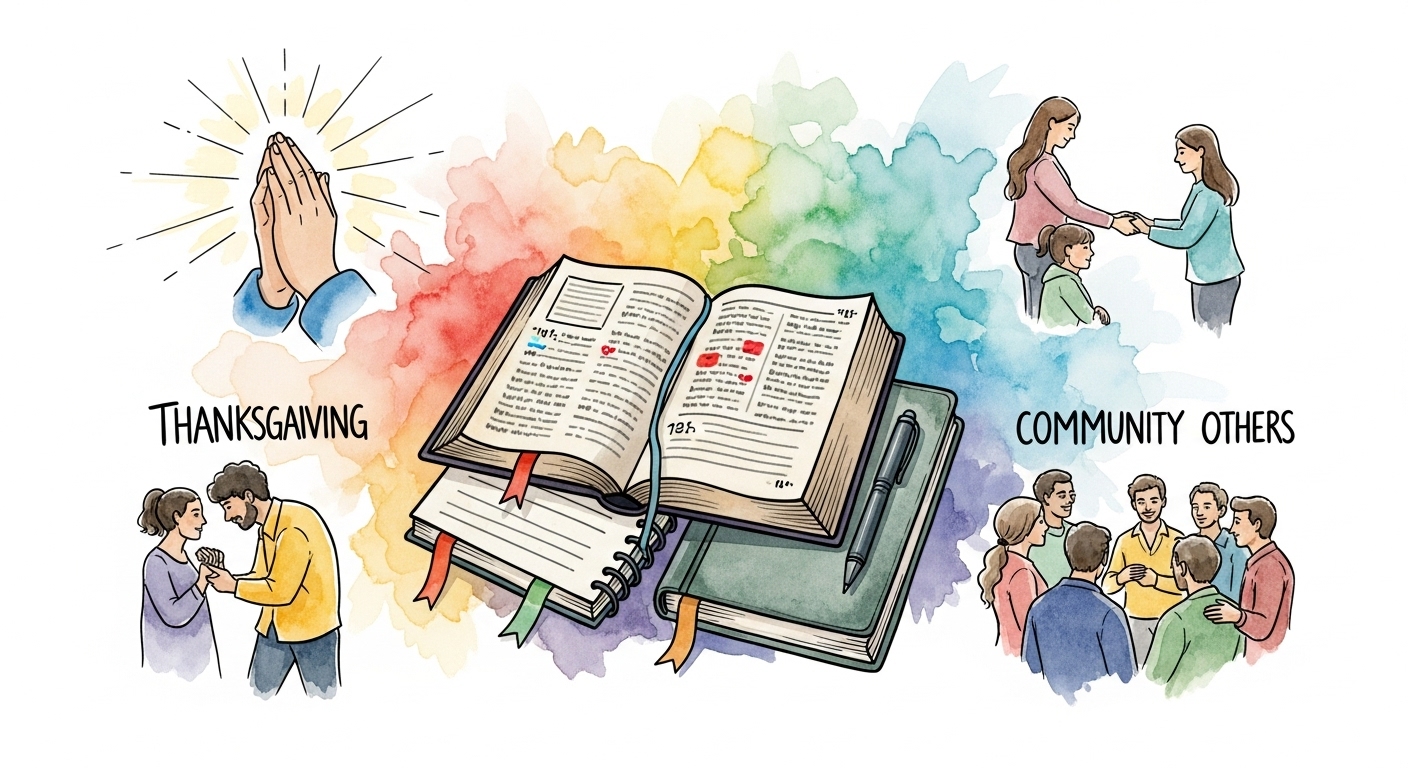The Miracle That Changed My Life Forever
You’ve probably read a headline before that promises life-altering change and felt the hair on your neck stand up for a second — curiosity mixed with guarded hope. This article isn’t a gimmick. It’s a conversational walk through a real turning point, told in a way that invites you to see how God’s presence can show up in every season of life. Throughout, you’ll encounter Christian miracle stories and Scripture that help you make sense of moments that seem impossible until they happen.
You aren’t alone if you’ve been waiting for a miracle. You may have felt stuck in loss, illness, fear, or a season of silence. Maybe you’ve been praying in whispers that feel like they hit a ceiling. The miracle I want to talk about is more than a single event — it’s a doorway. You’ll see how one extraordinary encounter can recalibrate faith, hope, and everyday living. Along the way, you’ll read echoes of Scripture linked to reliable sources so you can go read for yourself: for every verse I reference, I’ll include a Bible Gateway link so you can study in the NIV. As you read, notice the phrase Christian miracle stories, because these stories do more than amaze — they point you back to the heart of God.
How it started: a season of waiting
You know what seasons of waiting feel like. Days blur. Prayers get repeated like a worn-out song. Hope becomes cautious. In my telling, you are the one who’s been waiting — or perhaps you remember a time like that. The miracle that changed everything began in a quiet, painful season: unanswered prayers, financial strain, and the slow erosion of expectation. Many Christian miracle stories begin in seasons like that — when human solutions have been exhausted and your soul is forced to look upward.
In Scripture, you see seasons of waiting again and again. Consider Abraham and Sarah, waiting years for the promise of a child (read Genesis 17–21 for context). Or Moses and the Israelites, waiting through generations until God acted to free them (look at Exodus). The waiting wasn’t passive; it was a forging. You’ll find in Romans 8:25 that “if we hope for what we do not yet have, we wait for it patiently.” That patience isn’t easy, but it’s fertile ground for a miracle.

The moment before the miracle: a crisis and a prayer
You’ve probably stood at the edge of a decision and felt that split-second clarity — either move and risk a lot, or stay and carry the weight. For many Christian miracle stories, there’s a crisis that cracks open the heart. Your crisis might be medical, relational, or spiritual. In the narrative I’m sharing with you, it’s a stacked crisis: health complications, a job loss, and a family strained almost to breaking.
When you’re at that edge, prayer often changes form. It may begin as a plea: “God, please.” It becomes rawer, honest, and even bargaining at times. The Bible records many honest prayers. Think of Hannah’s anguish before she dedicated Samuel (read 1 Samuel 1:10–20). Her honest prayer led to action and a promise fulfilled. For a Scripture anchor, look at Philippians 4:6–7, which encourages you not to be anxious but to bring everything to God in prayer and thanksgiving.
When you pray in that season, your posture matters less than your presence. It’s okay if your words are few. The Holy Spirit knows the language of your heart.
The encounter: when ordinary becomes extraordinary
Miracles rarely come as fireworks. More often, they arrive in a moment so ordinary you almost miss them: the call from a doctor with unexpected test results, a neighbor who shows up with a casserole and a prayer, a friend describing a Scripture that lands like rain. In the Christian miracle stories you read, the turning point often has this quiet quality. You’re doing the dishes when you feel peace; you’re in the emergency room, and the diagnosis changes.
For the miracle that changed your life — the one we’re imagining together — it was a moment so small at first that you almost dismissed it: a nurse who refused to accept a prognosis as final, a verse read aloud that followed you like a melody, a pastor who quoted Mark 5:34 where Jesus says, “Daughter, your faith has healed you.” That phrase didn’t have to be directed at you to land in your bones. Christian miracle stories often include this kind of catalytic word.
You can read more of the healing narratives in Mark 5:21-43 for the intertwined stories of Jairus and the woman with the bleeding condition: Mark 5:21-43. These passages help you see how Jesus made room for both suffering and surprise healing.
What the Bible teaches about miracles
You want to reconcile personal experiences with Scripture. That’s healthy. The Bible is full of miracles — raw, messy, beautiful, at times terrifying. Miracles in Scripture serve several purposes: they authenticate God’s message, demonstrate His compassion, and reveal His power over creation.
The Israelites crossing the Red Sea (Exodus 14),

Elijah calling down fire (1 Kings 18)

Jesus calming the storm (see Mark 4:39)

and the raising of Lazarus (see John 11:1-44) all point to a God who acts in history.

If you’re looking for assurance that miracles are still relevant, consider Jesus’ words in John 14:12: “Very truly I tell you, whoever believes in me will do the works I have been doing, and they will do even greater things than these.” That isn’t a promise of effortless miracles; it’s a promise that God’s power continues to work through faithful people.
And remember Paul’s perspective: in 2 Corinthians 12:9 he writes, “My grace is sufficient for you, for my power is made perfect in weakness.” Sometimes miracles come as strength restored, sometimes as health, sometimes as peace that passes understanding, as in Philippians 4:7.
Real testimonies: snapshots of Christian miracle stories
Hearing real testimonies helps you know you’re not the only one. Below are condensed snapshots — not exhaustive case studies, but glimpses that may mirror your situation. These are framed to encourage you to see God at work in ordinary, broken circumstances.
- A single parent lost their job and faced eviction. Instead of spiraling, they found a church community that provided temporary housing and job leads. Within weeks, the parent received an unexpected job offer and a renewed sense of purpose. Their testimony emphasized prayer and community.
- A person diagnosed with a serious illness was told by doctors that options were limited. Against expectations, test results later showed remission. They testified that a specific Scripture — Psalm 46:1 — had sustained them: “God is our refuge and strength, an ever-present help in trouble.”
- A young adult felt overwhelmed by anxiety and depression. Through counseling, prayer, and a consistent community of faith, they described a sustained inner peace and clarity they’d never known before. They linked this to the promise of God’s presence in Isaiah 41:10.
These stories aren’t formulaic proofs; they’re invitations. Christian miracle stories often share a thread: people met God in their need and found him faithful.
How to recognize a miracle in your life
It’s easy to miss miracles because they can wear the clothes of ordinary life. You might be tempted to reserve the label “miracle” for dramatic divine interventions, but often the truly life-changing miracles are subtle — restored relationships, a shift in perspective, or the return of hope. Here’s how you can learn to recognize them:
- Track answers to prayer. Not all answers look like you expected, but patterns of provision, unexpected peace, or doors opening are noteworthy.
- Keep spiritual company. Community, mentors, and Scripture help you interpret what’s happening.
- Test against Scripture. Does the movement you sense align with the character of God revealed in the Bible? For guidance, read passages like 1 John 4:1 about testing spirits.
- Be patient with timing. Miracles in Christian miracle stories sometimes arrive slowly.
These are not rigid rules but helpful signposts. Miracles will often invite gratitude and point you back to God rather than to yourself.
When doubt creeps in: honest faith in crisis
Doubt isn’t the opposite of faith; it can be part of it. You might question, wrestle, and even feel anger. The Psalms are full of raw emotion — cries of despair followed by declarations of trust. Look at Psalm 13 for an example of a heart that asks hard questions and ends with praise.
Christian miracle stories don’t require you to be untroubled. Rather, they invite your honest questions into God’s presence. The apostles themselves had moments of doubt — Thomas needed to touch Jesus’ wounds (see John 20:24-29). Jesus met him in his doubt and offered more than proof: he offered the invitation to faith.
If you’re struggling, remember that God meets you where you are. Bring your doubt to Him, and let the community hold you as you process.
The after-effect: how a miracle rewires your life
When a miracle happens, it doesn’t just fix an external problem — it rewires how you see God, yourself, and others. You may find your prayers grow bolder, your compassion broader, and your theology deeper. Christian miracle stories typically show a ripple effect: the person who received hope often turns it into service.
You might discover new priorities. Where fear once guided you, gratitude begins to influence decisions. You’ll notice relationships shift — some deepen, others end as you no longer fit the same old patterns. In Romans 12:2, Paul encourages believers to be transformed by the renewing of the mind; a miracle can be a catalyst for that transformation.

A practical result you can expect: you start to see God’s fingerprints in smaller things. The miracle becomes a lens. When you pay attention, you’ll begin to recognize the gentle providences that are part of Christian miracle stories.
The community angle: how your miracle affects others
Miracles don’t happen in a vacuum. When you experience one, others are impacted. Your testimony can become oxygen for someone else’s flame. In the early church, testimonies spread quickly and drew people to faith (see Acts 4 and following chapters). When you share what God has done, you help normalize the idea that God is still active.
Sharing your story also invites accountability. Other believers can help you interpret and steward what God has given. They can pray, celebrate, and help you avoid pride or presumption. Christian miracle stories have long been shared in communities, not as points of celebrity, but as declarations of God’s work.
You might consider ways to steward your testimony: write it down, tell it to a trusted friend, or speak about it in a small group. Let your miracle strengthen the body.
How to pray when you’re waiting for your miracle
Prayer is the lifeline in seasons of waiting. It’s less about magic words and more about posture. Here are practical prayer habits that resonate with Christian miracle stories:
- Be honest. Speak your pain, doubt, and longing.
- Be persistent. Luke 18’s parable of the persistent widow (see Luke 18:1-8) encourages you not to give up.
- Pray Scripture back to God. Verses like Psalm 27:14 — “Wait for the Lord; be strong and take heart”—can structure your prayers.
- Combine prayer with obedience. Sometimes God’s answer is tied to movement. James 2 reminds you that faith without deeds is dead (see James 2:17).
Persistent, honest, scripture-rooted prayer aligns you with the kind of expectancy that Christian miracle stories often reveal.
Practical steps to stay open to miracles
You don’t have to wait for a lightning strike. Staying open to miracles can be part of your daily rhythm. Here are a few practical steps:
- Keep a prayer and gratitude journal to track God’s work.
- Surround yourself with honest, faith-filled people.
- Study testimonies and Scripture to increase your faith muscle.
- Serve others; often, serving opens windows for grace in surprising ways.
These steps help you be attentive and available for God’s movement. The more you practice, the more you’ll recognize those small, sacramental moments Christian miracle stories describe.
When a miracle doesn’t come the way you hoped
Not every story ends in dramatic reversal. Sometimes the miracle is a deeper presence amid pain rather than the removal of pain. You might not get the healing, reconciliation, or job you prayed for. Yet many Christian miracle stories testify to God’s sustaining presence in suffering.
Paul’s thorn in the flesh (see 2 Corinthians 12:7-10) is instructive: sometimes God’s “no” shapes you into dependence and reveals grace. In those seasons, the miracle is the strength you didn’t think you had. The miracle can also be the steadying of a soul.
If you face a different outcome, let Scripture help you reframe: Romans 8:28 promises that God works all things for good for those who love Him. That doesn’t dismiss pain, but it invites trust in God’s sovereignty and redemption.
How to tell your story well
If God has moved in your life, sharing that story matters. Here are simple guidelines to tell your testimony in a way that invites rather than imposes:
- Be honest and humble. A good testimony admits both doubt and amazement.
- Include specifics, but respect privacy. Names and intimate details aren’t required.
- Point to Scripture. Show how your experience aligns with God’s character.
- Offer hope. You aim to encourage others to seek God, not to boast.
Christian miracle stories are powerful when they bring others to worship and action.
Examples from Scripture to meditate on
There’s a rich treasury of miracle narratives that you can meditate on to increase your faith and understanding. Here are a few to study with links to the NIV on Bible Gateway:
- Crossing of the Red Sea — Exodus 14: Exodus 14
- Elijah and the drought to rain — 1 Kings 17–18: 1 Kings 17-18
- Jesus heals the paralytic — Mark 2:1-12: Mark 2:1-12
- Feeding of the 5000 — John 6:1-15: John 6:1-15
- Resurrection of Lazarus — John 11: John 11:1-44
- The early church’s signs and wonders — Acts 2–4: Acts 2-4
As you read, notice patterns: God meets people in need, often through ordinary means, and always with a purpose beyond the immediate fix.
Skepticism and faith: a healthy tension
You may be skeptical, and that’s okay. Reason and faith aren’t enemies; they can be companions. Christianity doesn’t ask you to abandon reason. In fact, many Christian miracle stories prompted inquiry and verification in the early church. Pilate asked Jesus, “What is truth?” (see John 18:38), and honest seekers continue asking rigorous questions.
Let your skepticism lead you to study Scripture, to consult trustworthy testimonies, and to test claims with prayer and community. Don’t let cynicism harden your heart; let inquiry refine your faith.

Living with the miracle: practical spiritual rhythms
Once you’ve experienced or recognized a miracle, establish rhythms that help you remain anchored:
- Daily Scripture reading and reflection.
- A rhythm of prayer that includes thanksgiving.
- Service to others as a way of stewarding what you’ve received.
- Regular community engagement — small groups, mentoring, or serving.
These practices sustain the miracle’s fruit in your life, preventing it from becoming a one-off experience.
Final reflections: what this miracle means for you
If you’re reading this and longing for change, this is for you. Christian miracle stories aren’t about spectacle; they’re about God stepping into human stories and inviting transformation. The miracle that changed a life — your life in this narrative — does three things: it deepens your trust, reorients your priorities, and increases your capacity to bring hope to others.
You’re invited to believe, to wait, to pray, and to act. Miracles happen where faith meets obedience and where communities hold fast to God’s promises. As you’ve read, Scripture offers both precedent and perspective. Remember the promise in Hebrews 11:1: “Now faith is confidence in what we hope for and assurance about what we do not see.” Christian miracle stories exist because of that faith in unseen reality.
If you’d like to take the next step, consider writing your story, even half a page, and sharing it with a trusted friend or small group. You might be surprised how your experience brightens someone else’s path.
Explore More
For further reading and encouragement, check out these posts:
👉 7 Bible Verses About Faith in Hard Times
👉 Job’s Faith: What We Can Learn From His Trials
👉 How To Trust God When Everything Falls Apart
👉 Why God Allows Suffering – A Biblical Perspective
👉 Faith Over Fear: How To Stand Strong In Uncertain Seasons
👉 How To Encourage Someone Struggling With Their Faith
👉 5 Prayers for Strength When You’re Feeling Weak

📘 Jesus and the Woman Caught in Adultery – Grace and Mercy Over Judgement
A powerful retelling of John 8:1-11. This book brings to life the depth of forgiveness, mercy, and God’s unwavering love.
👉 Check it now on Amazon 🛒💥
🔥 “Every great message deserves a home online.” 🌍💬🏡
Don’t let your calling stay hidden. Start a Christian blog or website using Hostinger — with 99.9% uptime, a free domain, and SSL, your voice can shine for God’s glory anytime, anywhere.
💥 Begin today. 🛒 Try it RISK-FREE! ✅
✝️ “Your body is God’s temple — care for it with purpose.” 💪💖🏛️
Renew your energy and restore balance naturally. Mitolyn helps support a healthy metabolism, giving you the vitality to live out God’s calling with strength and confidence.
🔥 Unlock Your Metabolic Power! ⚡Burn More Calories & Feel Great With Mitolyn. 💪
👉 Start Today. 🚀 Check Price Now. 🛒💰
💰 As a ClickBank & Amazon Affiliate, I earn from qualifying purchases.
📖 Acknowledgment: All Bible verses referenced in this article were accessed via Bible Gateway (or Bible Hub).
🚀 Want to explore more? 👉 Dive into our new post on Why Jesus? and experience the 🔥 life-changing truth of the Gospel!




